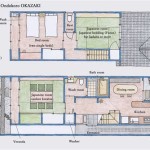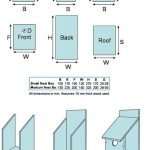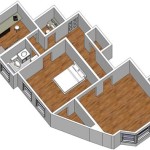What Is A Site Plan?
A site plan is a scaled drawing that shows the layout of a piece of land and the structures on it. It is typically used to plan the development of a new property or to improve an existing one. Site plans can be used for a variety of purposes, including:
- Planning the layout of buildings, roads, and other infrastructure
- Determining the best use of a piece of land
- Estimating the cost of development
- Obtaining permits from local authorities
Site plans can be created by hand or using computer-aided design (CAD) software. They typically include the following information:
- The property boundaries
- The location of buildings, roads, and other infrastructure
- The topography of the land
- The location of trees, shrubs, and other vegetation
- The location of utilities, such as water, sewer, and gas lines
The level of detail in a site plan will vary depending on its purpose. For example, a site plan that is used to obtain a permit from local authorities will need to be more detailed than a site plan that is used to plan the layout of a new home.
Site plans are an important tool for planning the development of land. They can help to ensure that a development is well-planned and that it meets the needs of the community.
Essential Aspects of a Site Plan
There are a number of essential aspects that should be included in a site plan. These include:
- The property boundaries: The property boundaries should be clearly marked on the site plan. This information is important for determining the size of the property and for planning the layout of buildings and other structures.
- The location of buildings, roads, and other infrastructure: The site plan should show the location of all buildings, roads, and other infrastructure on the property. This information is important for planning the flow of traffic and for ensuring that all necessary services are available.
- The topography of the land: The topography of the land should be shown on the site plan. This information is important for determining the best way to develop the land and for mitigating potential problems, such as erosion and flooding.
- The location of trees, shrubs, and other vegetation: The site plan should show the location of all trees, shrubs, and other vegetation on the property. This information is important for planning the layout of buildings and other structures and for preserving the natural beauty of the land.
- The location of utilities, such as water, sewer, and gas lines: The site plan should show the location of all utilities, such as water, sewer, and gas lines, on the property. This information is important for planning the layout of buildings and other structures and for ensuring that all necessary services are available.
By including these essential aspects, a site plan can be a valuable tool for planning the development of land. It can help to ensure that a development is well-planned and that it meets the needs of the community.

Site Plan Wikipedia

What Is A Site Plan Definition Elements And Examples

What Is A Site Plan Do I Need It For Home Improvement Project

What Is A Building Site Plan

What Is A Site Plan Do I Need One Ethos Landscapes

Site Plan Designing Buildings

What Is A Site Plan Definition Elements And Examples

A Typical Site Plan Scientific Diagram

What Is A Site Plan 12 Elements Of Smart Plot Plus Floor Vs S The Difference 24h Plans For Building Permits

Create Site Plans And Property Designs
Related Posts








